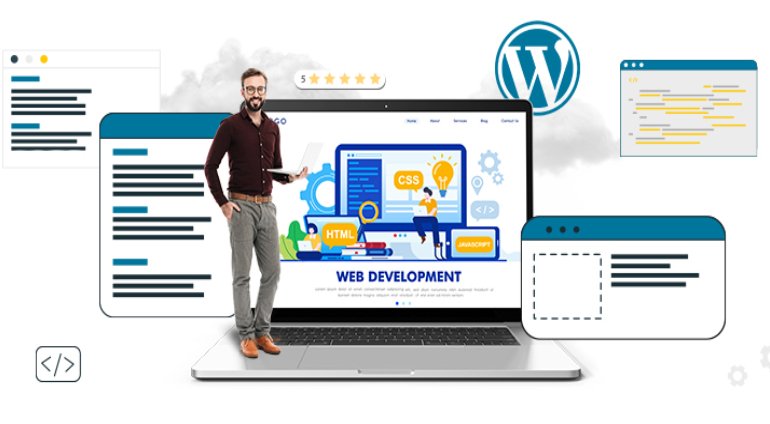WordPress Website Development

WordPress Website Development
WordPress is a popular content management system (CMS) that allows users to create and manage websites easily. It’s known for its flexibility, user-friendly interface, and a vast ecosystem of themes and plugins. Here are key aspects of WordPress website development:
- Installation:
- WordPress can be installed on a web server or a hosting platform. Many hosting providers offer one-click installations, making the process straightforward.
- Themes:
- WordPress offers a wide range of themes that control the overall look and feel of your website. Choose a responsive theme that works well on various devices.
- Plugins:
- Plugins extend the functionality of WordPress. There are plugins for SEO, security, e-commerce, contact forms, and more. Carefully select and install plugins based on your site’s needs, and ensure they are regularly updated.
- Customization:
- WordPress allows for easy customization. You can customize the appearance, layout, and functionality of your website using the WordPress Customizer or by editing the theme’s code directly.
- Content Creation:
- WordPress provides a user-friendly editor for creating and managing content. You can write and edit posts and pages, add images, videos, and other media, and organize content using categories and tags.
- SEO Optimization:
- WordPress is inherently SEO-friendly, but you can enhance this by using SEO plugins like Yoast SEO or All in One SEO Pack. These plugins help you optimize content, meta tags, and other elements for search engines.
- Security:
- Security is crucial for any website. Regularly update WordPress, themes, and plugins to patch security vulnerabilities. Additionally, use security plugins, strong passwords, and implement best practices to secure your site.
- Performance Optimization:
- Optimize your WordPress website for performance by using caching plugins, optimizing images, and choosing a reliable hosting provider. A fast-loading site is essential for user experience and SEO.
- Responsive Design:
- Ensure your website is responsive, meaning it adapts to different screen sizes. This is crucial for providing a good user experience on mobile devices, which are increasingly used for web browsing.
- User Management:
- WordPress allows you to create different user roles with varying levels of access. Manage user roles to control who can publish content, moderate comments, and perform other tasks.
- Regular Backups:
- Regularly back up your WordPress site to prevent data loss in case of accidents, security issues, or other unforeseen events. Many hosting providers offer backup solutions, and there are also various plugins available for this purpose.
- Community and Support:
- WordPress has a vast community of users and developers. Take advantage of forums, online communities, and official documentation for support and guidance.
- E-commerce Integration:
- If you plan to set up an online store, WordPress offers e-commerce plugins like WooCommerce. These plugins provide tools for managing products, orders, and payments.
- Analytics Integration:
- Integrate analytics tools, such as Google Analytics, to track and analyze website traffic. This data can help you understand user behavior and make informed decisions for site improvement.
- Updates and Maintenance:
- Regularly update WordPress, themes, and plugins to access new features, improvements, and security patches. Check your website regularly for broken links, outdated content, and other issues.